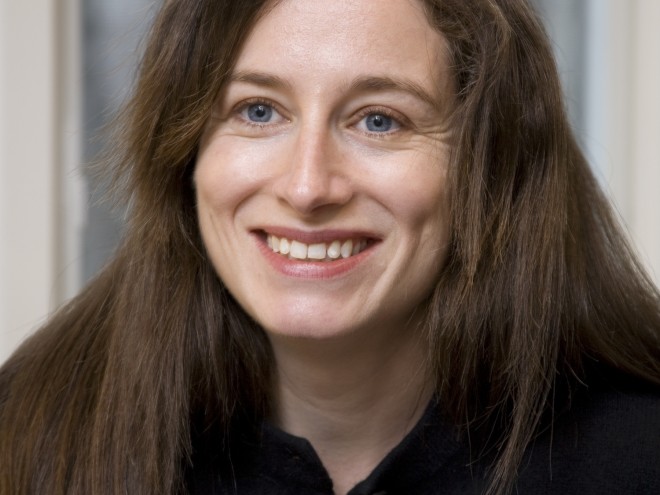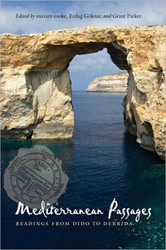“Truth” means different things to different people, especially in connection with Holocaust writing. Some prize factual accuracy, the “testimony” of “witnesses.” Others look to a deeper understanding of human motivations and actions. Ruth Franklin, whose superb literary criticism is well known to readers of The New Republic, stands firmly in defense of the imagination as a way to illuminate the truth. Not that she has any tolerance for the fabrications of Benjamin Wilkomirski, who claimed to be a Jewish child-survivor of the Shoah but actually spent the war years with his Christian family in Switzerland. But neither can she endorse judging a novel according to whether its details actually happened.
Among the writers considered in her essays, Nobel Prize winner Imre Kertész explicitly scorns the idea of Holocaust stories as factual testimony, and Franklin considers his Fatelessness as “perhaps the greatest novel yet written about the Holocaust.” She describes Jerzy Kosinski’s novel The Painted Bird as accomplished and often beautiful even as she recognizes that its narrator could not possibly have witnessed all he described. G. W. Sebald, author of The Emigrants and Austerlitz, asserted that “the truth value of the story does not depend on its actual truth content,” and mingled fact and fiction so much that they are virtually indistinguishable.
Not everyone can tolerate that kind of ambiguity. After Primo Levi maintained that he invented nothing in Survival in Auschwitz; critics claimed to find discrepancies when it was compared to the testimony of other eyewitnesses. When a new translation of Elie Wiesel’s Night was published, some scholars leaped on supposed inconsistencies with the earlier version, or with his memoirs. Franklin calmly clarifies, “they are moments of artistic license, and that is precisely why they are important.”
She touches as well on the moral limitations of Bernhard Schlink’s popular novel The Reader, and on the “deranged pride” of Melvin Jules Bukiet, who uses his father’s tattoo number as his ATM passcode and claims genetic wisdom about the Holocaust. Franklin also praises the work of third-generation writers like Nathan Englander, whose short story “The Tumblers” she considers “the most brilliant treatment of the Holocaust in contemporary American fiction.” Ruth Franklin’s keen analysis makes a major contribution to the literary criticism of Shoah writers, and her humane perspective renders the nuances of a fraught subject newly comprehensible.
Read Ruth Franklin’s Posts for the Visting Scribe
Holes
Everything We Need to Know
Not a Historical Record
Read about Ruth on the ProsenPeople
Meet Sami Rohr Prize Finalist…Ruth FranklinOut of Atrocity, Art
In 1995, fifty years after the end of the war, a new Holocaust memoir was published to great acclaim. Its author was compared to Jean Améry, Paul Celan, and Primo Levi. It was championed virtually unanimously by critics, one of whom called it “so morally important, and so free from literary artifice of any kind at all, that I wonder if I even have the right to try to offer praise.”
The book was Fragments, by Binjamin Wilkomirski. You know the rest of the story. The author was quickly revealed as an imposter. His unmasking made critics and academics alike wring their hands. How, they wondered, could this have been allowed to happen? But the real wonder is that it did not happen sooner. For Wilkomirski’s fraud was the inevitable consequence of the way Holocaust literature has been read and understood in the decades since the war — the focus of my book, A Thousand Darknesses: Lies and Truth in Holocaust Fiction.
“To write a poem after Auschwitz is barbaric”: Theodor Adorno’s famous dictum generated a fog of suspicion over the very possibility of creating art in the wake of atrocity. His remark has been uncritically received as a general prohibition against imaginative literature about the Holocaust, which is said to be beyond representation. “A novel about Auschwitz is either not a novel, or it is not about Auschwitz,” Elie Wiesel has written, arguing that to fictionalize “insults the dead.” Those who wish to learn about the Holocaust, Wiesel writes, should read testimonies and watch documentaries. Not surprisingly, critics who address themselves to this body of work have tended to feel, as Wilkomirski’s reviewers did, that they hardly have the right to offer praise, much less criticism. Is it not superfluous to apply literary criteria to works that testify to some of the greatest brutalities in history?
Yet if readers automatically suspend their critical faculties when it comes to the Holocaust, the inevitable consequence will be frauds like Wilkomirski’s, which proliferated — not by accident — over the last few decades. At the same time, if fidelity to historical fact becomes the only benchmark by which to judge Holocaust writing, we overlook the crucial role the creative imagination plays in the greatest of these works. Authors like Tadeusz Borowski were writing poetry about their experiences while still in the camps. And even the testimonies that feel the most authentic — Anne Frank’s diary, or Elie Wiesel’s Night—were written and re-written with an eye to increasing their impact. Their “literary artifice” isn’t a fatal flaw: it’s part of what makes these books both memorable and important.
Is there an essential difference between writing a novel about the Holocaust and fabricating a memoir? Do Holocaust narratives have a special obligation to be truthful — that is, faithful to the facts of history? And why are they so often thought to be exempt from criticism and interpretation? These are some of the questions I explore in A Thousand Darknesses, which investigates the tension between fact and fiction, testimony and imagination, in major works of Holocaust literature — from the survivor accounts of Wiesel and Primo Levi to the film Schindler’s List and the fictional writings of W.G. Sebald and Bernhard Schlink. Some of these books are assumed to be memoirs; others, like Jerzy Kosinski’s The Painted Bird, were once thought to be true and have since been proved false. But I discovered that such designations are virtually meaningless, because every canonical work of Holocaust literature involves some graying of the line between fiction and reality. Such creative license doesn’t insult the dead; rather, it elevates these works into art.
A Thousand Darknesses grew out of a series of reviews I wrote for The New Republic, which welcomed me to its staff in 1999. (It’s a serious book, but not a scholarly one: as a journalist, I write for the general reader.) My connection to the Holocaust runs deep: I grew up hearing my maternal grandparents, both survivors, tell harrowing stories over the dinner table. But I came to this subject also through books. Anne Frank’s iconic diary; Wiesel’s Night, which I still have in a now crumbling paperback given to me when I was ten; the terrifying collection of poems and drawings by children in Terezín called I Never Saw Another Butterfly—these are among my earliest reading memories. I sought in these books, I now realize, what we seek in all literature: imaginative access to a world not our own. Later I studied Polish in Krakow and German in Berlin; in my graduate work, I tried to reconcile the beauty of these literary languages with the atrocities perpetrated by their speakers.
I used to joke that my next book would be about a cheerier subject — perhaps tulips or puppies. Some cautioned that it might be hard to leave the Holocaust behind, and they were right. In the future I plan to complete a translation of Tadeusz Borowski’s poetry, which I’ve been working on for several years, as well as undertake a new biography of the poet Paul Celan. My current project, a biography of Shirley Jackson, is largely the story of Jackson’s marriage to the seminal Jewish literary critic Stanley Edgar Hyman and the complexities of such a union in postwar America. “The Lottery,” Jackson’s most famous short story, may have been inspired by the anti-Semitism that the couple experienced after moving to an insular New England town. Jackson devoted much of her work to exploring the crueler aspects of human nature, particularly religious and racial prejudice.
Speaking personally, I’ve always felt a moral imperative to commemorate the Holocaust as well as an intellectual drive to investigate its sources and consequences. I’m deeply moved that A Thousand Darknesses has been selected as a finalist for the Sami Rohr Prize, honoring these dual commitments.
Bob Goldfarb is President Emeritus of Jewish Creativity International.





